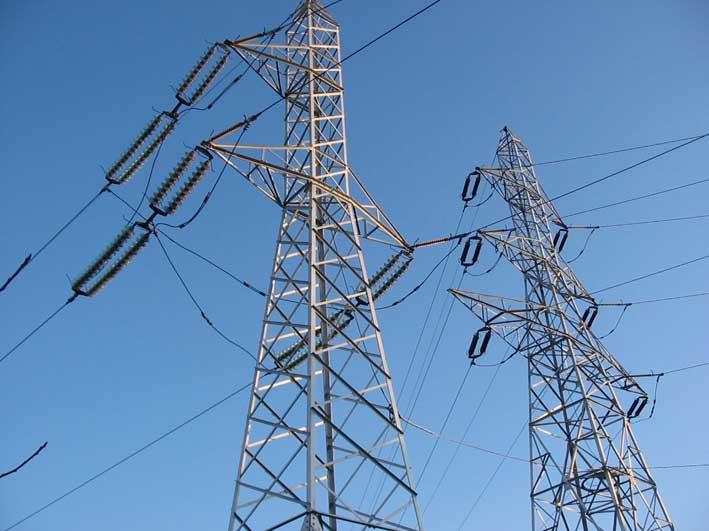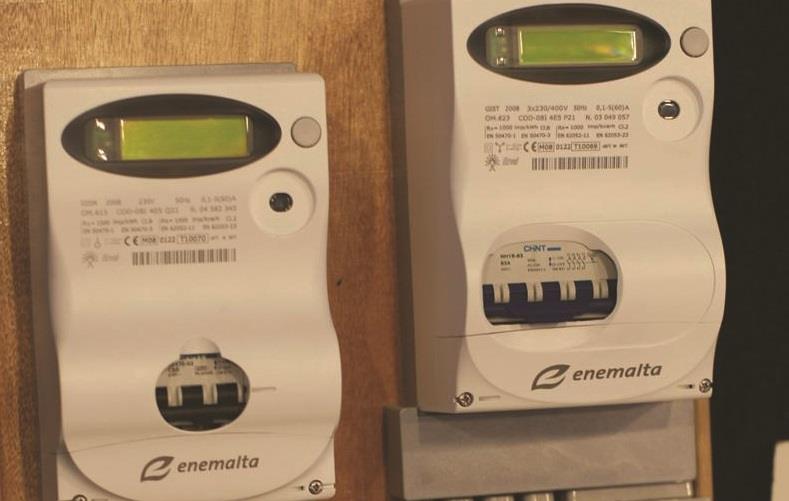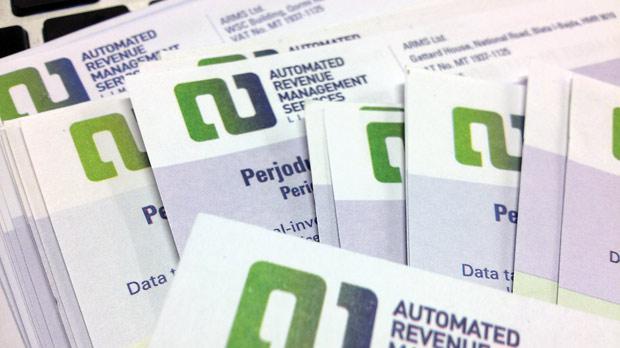Households receiving ARMS bills more frequently are far more likely to be experiencing an increase in their overall bill.
Disgruntled consumers have taken to social media of late to complain about an unexplained increase in their electricity bills. Further frustration emerges due to the complexity of simply trying to understand the way ARMS calculates its bills, spread over two pages and received at seemingly random periods.
It would appear that a provision in the law saying that consumers "may be billed on a pro rata basis", together with a lack of consideration as to how frequently a household can be billed, has allowed a situation to arise where people are actually paying far higher rates.
So how does this all work?
As found on the ARMS website, different bands are provided for the units consumed in a year. A household may consume up to 2,000 kWh per year at the cheapest rate of €0.1047. For every unit of the next 4,000 kWh consumed, the rate goes up to €0.1298, and rises again to €0.1607 for the next 4,000 kWh. After that, the rate climbs to €0.3420 for the next 10,000 kWh and, lastly, €0.6076 for any more consumption after that. These rates refer to the cheaper residential tariff.
While some consume so little in any given period that they will never hit the higher rates, anyone who consumes more electricity in a single billing period will reach higher tariff rates, even if they consume little in total over a whole year. The shorter the billing period, the more impossible it becomes to average out consumption and stay within the low tariff quotas. In short, receiving electricity bills more frequently has a direct and material impact on the amount due to ARMS - at least for anyone that does not consume the same low amount every day of the year.

Since each household* has 2,000 units/kWh per year at the cheapest rates, this amount works out to roughly 5.5 units per day. Some days we consume less than that, but some days we consume more - and that is perfectly fine because some days are colder or warmer than others.
When ARMS bills a consumer for a two-month period, they arbitrarily chop up the quota. So the 2,000 units per year (at €0.1047) is rationed into the 57 days covered by the Jan/Feb 2018 bill, leaving you with just 323.3 units at the cheapest rate.
This is not enough for the two coldest months of the year - considering the use of water heaters, room heaters and other appliances that enable us to get through the winter in comfort. It would mean that I'd start to pay at the 12c9 rate and if I consumed more, I could be paying at the 16c rate or even the 34c2 rate.
Therefore, logically and mathematically, it stands to reason, as many people are slowly waking up to see, that it is far easier to jump this quota in a shorter, high consumption period. This occurs because when ARMS invoices in short billing periods, they also ration the quota. The cherry on the cake is that ARMS does not provide a rebate at the end of the year - it does not allow for compensation of low consumption months against high consumption months. Longer billing periods resolve this problem, because low consumption months compensate for high consumption months without the need for rebates.
Taking the example further, had ARMS decided to bill me for a period of four months - say January to April - I'd be far more likely to stay reasonably within the cheaper band rates because a longer period means a greater portion of the cheap-quota being allotted.
January to April covers a period of 120 days. A total of 5.479 units per day covers this cheapest rate as calculated above, therefore 120 days x 5.479 units gives me 657.48 units at the cheapest rate of €0.1047.
In fact, as March rolls on and the weather starts to get warmer, people across Malta and Gozo find they need to use their heaters less, they find that the hot water doesn't go cold as quickly and the days get longer, meaning they start to switch on their lights later in the day. In addition, for a lot of people the warmer spring weather means they will be going out of the house more and more.

It therefore stands to reason that a significant proportion of those cheap 657.48 units will likely be eaten up during January and February, the colder months, but consumption is likely to go down and smooth out in March and April. This means that even if I went over the limit in January and February, I would be compensated in March and April. The larger period of time gives me the chance to off-set my high consumption period with the lower ones.
When it chose a shorter, two-month, billing period, ARMS also took it upon itself to chop up the quota - without allowing consumers the possibility of using the quota in the next billing period. Should ARMS decide to go for a one-month invoice, or even a two-week one, the bills will become higher and higher.
For simplicity's sake, let us say that you were awarded 1,200 cheap units per year and the rest were expensive units. Long billing periods allow you to consume those 1,200 cheap units as and when you want. Now, let us ration them to 100 units a month. If - in a cold month - you consume 150 units, you will be charged at the expensive rate. But the next month, when you consume only 75 units, you simply lose the rest of the 25 cheap units. This is the system ARMS has adopted: charging more frequently resulting in higher bills and no chance of a rebate.

ARMS questions
The Malta Independent on Sunday questioned an ARMS representative on how it decides to bill 'Family A' every two months and 'Family B' every six months. Not everybody is receiving bills as frequently as everyone else: some account holders receive an 'N' reading (N refers to 'no reading') every two months and simply have to pay a service charge, and by the third two-month billing period (so six months would have gone by) they receive an actual bill for the whole six-month period.
When asked how it decides to bill one account holder at one frequency and another at a different frequency, a spokesperson replied:
"Please note that ARMS Ltd's billing system is in accordance with legal notice 164/09 and supply regulations which entail pro rata billing on every individual invoice which is based on the actual consumption recorded during every stipulated time frame of every invoice.
"With regard to the frequency of the billing, kindly be informed that ARMS Ltd kept the same billing arrangement as was previously adopted by the Water Services Corporation who were entrusted to issue utility bills prior to the formation of Arms Limited."
The quota rationing (and billing at higher rates) by ARMS seems to be happening on the back of this clause: "Without prejudice to the other provisions of these regulations a Residential Premises Service shall be subject to the following Consumption Tariff based on a cumulative consumption per annum and which may be billed on a pro rata basis."

Economist Dr Marie Briguglio comments:
"One way to reconcile the first part of this clause (Cumulative consumption per annum) with the second part (billed pro-rata) is to allow for billing based on a pro-rata of the quota AND reconciliation at the end of the year, based on cumulative consumption. For reasons I cannot understand, ARMS take this clause to mean that they can bill any time, for any period and ration the quota accordingly - but without giving back the rebate."
Mathematician Prof Josef Lauri agreed: "But surely, what you are saying is the obvious solution. Yes, pay pro-rata every two months (on account, sort of, to avoid a hefty bill after 12 months) then reconcile at the end of the year. Isn't that how we pay income tax with the PAYE system?"
Reconciling the entire annual quota at the end of the year and providing a rebate where appropriate would at least be a step in the right direction, but low income households with low cash-flow will probably still struggle to pay for ARMS' over-charging due to quota rationing.
Independently, there is a court case regarding this matter, filed by a resident of Lija by the name of Darren Cordina, who has taken ARMS to court over its billing system.
There is so much confusion surrounding the way ARMS bills its customers - who have no choice but to make use of their services - that a group of citizens have even set up a dedicated e-mail address aimed at helping people understand how they are being billed.
Meanwhile, Patricia Graham - an advocate for a fairer and more transparent billing system - wrote on Facebook: "In the light of recent posts regarding the way ARMS calculates our bills, we are a group of concerned citizens volunteering to bring this subject to light. Confused about your ARMS bill? We will try to help you understand your bill and if you're being overcharged. Take a photo of page 2, and send it on to [email protected] and we will try to assist."
In the meantime, questions are also being asked on social media as to whether ARMS' practices constitute an 'abuse of dominance' (which includes refusal to supply, excessive pricing and price discrimination), contrary to the European Union's competition rules.
*
Editorial note: The units of electricity awarded at each tariff pertain to each household, and not to each registered person as the story previously reflected.